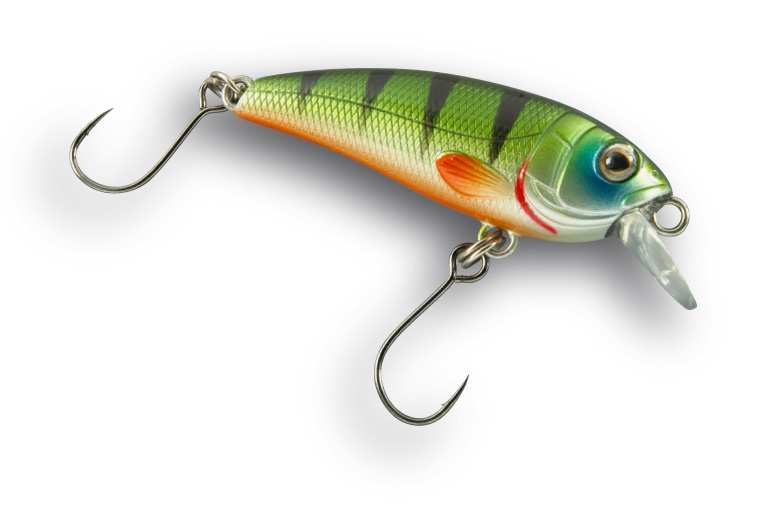I have been fishing since I can remember, say roughly 50 years now. But in recent years I have moved to using Barbless hooks almost entirely. Some hooks I buy Barbless and others I just crush the barb down.
Have a lost some fish going barbless? Sure. But in most cases I can as usual place the blame on myself – in simple terms by not keeping the tension on the line. There is a video floating around of Lefty Kreh demonstrating the use of barbless hooks from the 70’s or 80’s. So it is not new and there is really not much reason to shy away from it.
Personally it bothers me when you have those moments where you are crouched by the water thinking “aww shit” fumbling around with a badly hooked fish. I don’t mind keeping fish but I prefer to do it I on my terms – not by accident.
Some fish like the Australian Bass strike so hard that it can become a real mess, throw in Trebles and it is more than three times messier. So I am just at that point where I really don’t want the trouble when I am out there to enjoy myself. If I lose the fish then I can “hat tip” the fish and put it down to I need to do better with my own skills.
There are also times when I would prefer to keep the barb or at least a half crushed barb. Jig Heads on Soft Plastics being one. And bead heads it can sometimes be helpful. Essentially those situations where the mass can help a hook shake free. Some species may also require it, but the arguments for barbed hooks are becoming weaker as time goes on.
On the anglers side it makes hook removal from a human much less of a problem. What can be a minor issue of the day can get ugly quickly with a fully barbed hook.
I am also not one to tell others what to do. So make your own choices, but I do think that I would rather see self policing than legislation. The way the world is moving either we are ahead of the curve or Governments will just introduce blanket bans. Some rivers are already barbless only. So better to just get used to it. And generally I would rather be able to use a Barbed hook when I feel the situation is appropriate rather than have it dictated down from up high.
Generally so long as you keep your line tight which you should do anyway, you should have minimal problems. It might even take a bit of getting used to, but practice is never a bad thing.
So here is a summary:
**1. Fish Welfare and Conservation:
- Reduced Injury and Stress:
- Barbless hooks cause less harm to fish compared to their barbed counterparts. The absence of a barb reduces the potential for deep hooking, making it easier to release fish without causing unnecessary injury or stress.
- Faster and Safer Releases:
- Barbless hooks facilitate quicker and safer releases. Anglers can remove the hook more easily, minimizing the time a fish spends out of the water. This is particularly crucial in catch-and-release practices, contributing to the overall well-being of the fish population.
**2. Angler’s Convenience:
- Easier Hook Removal:
- One of the primary advantages for anglers is the ease of hook removal. Barbless hooks slide out more smoothly, saving time and effort during the unhooking process. This is especially beneficial when handling species with delicate mouths or when using smaller-sized hooks.
- Less Damage to Gear:
- Barbless hooks are known to cause less damage to fishing gear, such as landing nets and fish-friendly materials. Anglers can enjoy a more streamlined and efficient fishing experience without the risk of snagging gear on barbs.
**3. Regulatory Compliance and Ethical Angling:
- Regulatory Requirements:
- Many fisheries and angling destinations have adopted barbless hook regulations to promote ethical angling and protect fish populations. Using barbless hooks ensures compliance with such regulations, fostering a culture of responsible fishing.
- Ethical Angling Practices:
- Anglers who choose barbless hooks often do so as part of their commitment to ethical angling. By minimizing harm to fish and following sustainable practices, anglers contribute to the conservation of fisheries and promote a positive image of the angling community.
**4. Increased Landing Rates:
- Enhanced Hook Sets:
- Contrary to common misconceptions, barbless hooks can result in more secure hook sets. The lack of a barb allows the hook to penetrate more easily, increasing the chances of solid hook-ups and reducing the likelihood of fish escaping due to leverage.
- Adaptability for Various Species:
- Barbless hooks are versatile and suitable for various fishing scenarios and species. From fly fishing for trout to catch-and-release practices in bass fishing, anglers find that barbless hooks offer effective and humane solutions across different fishing styles.
